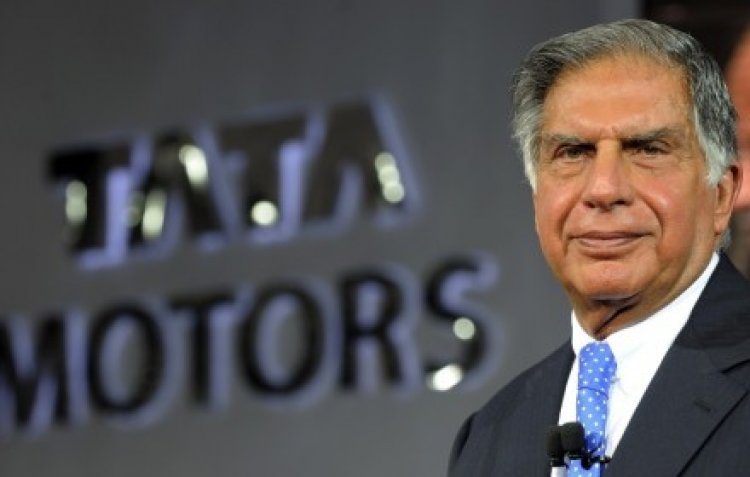Ratan Tata's Success Story
Ratan Tata is a prominent Indian entrepreneur and the former Chairman of the Tata Group of Companies, India's largest corporation. Let us further know about Ratan Tata's success story.

Ratan Tata is presently Chairman Emeritus of Tata Sons, the Tata Group's parent company, which owns Tata Steel, Tata Motors, Tata Power, Tata Consultancy Services, Indian Hotels, and Tata Teleservices, among other key enterprises. He was raised by his grandmother from the age of 10 after his parents divorced, and after graduation, he got actively engaged in the family company. He began his career at Tata Steel as a coworker on the factory floor, where he learned about his family's business. Later he became the new Chairman of the Tata Group after J.R.D. Tata retired. Under his guidance, the company soared to greater levels and raked insignificant sums of money from outside.
He had a key role in the acquisitions of Tetley, Jaguar Land Rover, and Corus, which transformed Tata from an India-centric corporation to a worldwide brand. He has worked in numerous roles in Indian and international organisations in addition to building his multinational. He is also a major philanthropist, with more than half of his company's stock held in charity trusts. Even after retiring, he continues to function as a driving force for his business through his pioneering ideas and cheerful perspective.
Childhood and Youth
Naval Tata and Sonoo Tata were his parents, and he was born on December 28, 1937, in Surat, India. Ratanji Tata, the younger son of Jamsetji Tata, had an adopted son named Naval Tata. The Tata Group of Companies was founded by Jamsetji Tata. Jimmy Tata is Ratan Tata's brother, while Noel Tata is his stepbrother. He attended the Campion School in Mumbai for his early education and the Cathedral and John Connon Schools in Mumbai for his secondary education. He received his B.S. in architecture with structural engineering from Cornell University in the United States in 1962. Subsequently, he joined Harvard Business School and graduated with honours from the Advanced Management Program in 1975. He began his employment with the Tata Steel division in 1962, moving stones and working with the furnaces with blue-collar workers. It was demanding work, but it taught him a lot about his family's company and made him respect it more. He was named Director-in-Charge of the National Radio & Electronics Company Limited (NELCO) in 1971 in order to repair the company's ailing finances.
He worked hard to improve the company's consumer electronics segment, but the downturn and labour strike hampered his progress. In 1977, he was sent to Empress Mills, a Tata Group textile plant that was failing. He offered a mill design, but it was rejected by the other Tata officials, and the mill was shut down. He was afterward transferred to Tata Industries. J.R.D. Tata named him the new Chairman of the Tata Group of Companies in 1991. Following concerns from other corporate officials, this choice was questioned, and questions were raised about his competence to govern the organisation. However, under his direction, he was able to improve the financial success of the industries and increase the organisation's growth. He changed the division's leadership and direction, and he was able to increase dividends by a substantial amount. He is also a member of the Mitsubishi Cooperation, the American Worldwide Group, JP Morgan Chase, and Booze Allen Hamilton's international advisory boards. He resigned as Chairman of Tata Group on his 75th birthday, December 28, 2012, and was succeeded by Cyrus Mistry, managing director of Shapoorji Pallonji Group. He continues to be an active businessman even after retirement, investing in new and potential company ideas.
Major Projects
He was able to earn international prominence and distinction for the Tata Group as Chairman. The Tata Group's phenomenal financial performance landed it on the New York Stock Exchange, and under his leadership, the firm grew into a global brand by purchasing companies like Tetley, Jaguar Land Rover, and Corus. He was a key figure in the design and development of the Tata Nano and Tata Indica automobiles.
Achievements & Awards
- In the year 2000, the Padma Bhushan, India's third-highest civilian honour, was bestowed to him.
- The Government of Uruguay awarded him the 'Medal of the Oriental Republic of Uruguay' in 2004.
- The B'nai B'rith International awarded him the 'International Distinguished Achievement Award' in 2005.
- The London School of Economics and Political Science awarded him an Honorary Fellowship in 2007.
- In 2008, he was given the 'Padma Vibhusan,' India's second-highest civilian honour.
- The Government of Italy awarded him the 'Award of 'Grand Officer' of the Order of Merit of the Italian Republic' in 2009.
- He was made an Honorary Knight Commander of the Order of the British Empire in the United Kingdom in 2009.
- He was awarded the 'Oslo Business for Peace Award' by the Business for Peace Foundation in 2010.
- He was awarded the title of "Honorary Knight Grand Cross of the Order of the British Empire" in 2014.
Personal History and Legacy
Ratan Tata is a bachelorette. He is noted for keeping a low-profile lifestyle. He lives in a modest home in Mumbai and commutes in a Tata Sedan.
Books Written by Ratan Tata
- The Wit & Wisdom of Ratan Tata
- From Steel To Cellular
“None can destroy iron, but its own rust can! Likewise, none can destroy a person, but its own mindset can!”
- Ratan Tata


 Local BangaloreTeam
Local BangaloreTeam 










